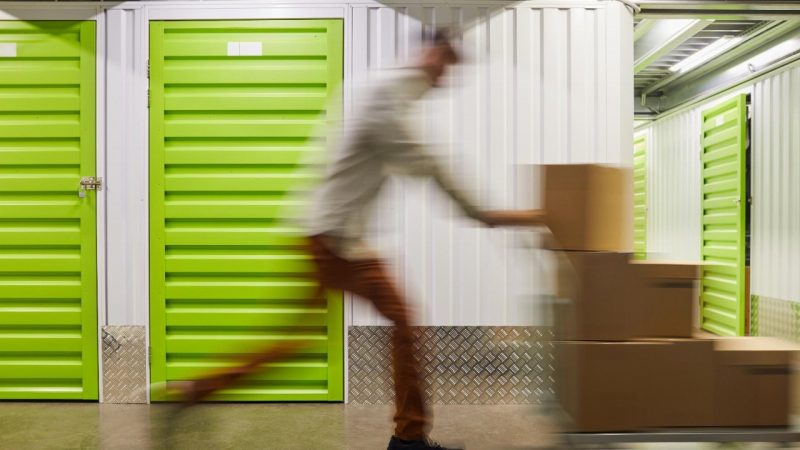- Self-storage is emerging as one of the fastest-growing segments of Australia’s industrial market for both investors and owner-occupiers
- Owing to increases in total unit rental prices and tightening yields, the average cost per storage unit rose from $19,135 in the 2019 fiscal year to $22,152 in 2020, according to m3property
- CBRE Industrial & Logistics Australia senior director William Gathercole said the self-storage market also presented a compelling investment opportunity on a larger scale
- The real estate appraiser said prices have already risen this year by five per cent, as market yields average 6.5 per cent, tightening from seven per cent over a year ago
- Despite the impact of COVID-19, well over $300 million of self-storage facilities transacted in the calendar year 2020, according to CBRE
Self-storage is emerging as one of the fastest-growing segments of Australia’s industrial market for both investors and owner-occupiers.
CBRE’s Nick Zenonos said over the past 12 months, buyer demand for self-storage facilities in Sydney had spiked significantly — pushing up prices from around $7500 per square metre to over $10,000 per square metre at some locations.
“The low interest rate environment, combined with high rental storage rates, has sparked a shift in consumer attitudes, with more people opting to purchase facilities to meet their increasing storage needs,” Zenonos explained.
m3property managing director Ross Perkins said the appetite for self-storage units has been increasing.
“Self-storage demand is booming in Australia as a culture of consumerism, e-commerce growth, shrinking living spaces and rising population drive demand from individuals and families for secure and convenient facilities for storing personal belongings,” he said.
Perkins said the pandemic had a part to play in the demand, citing examples of restaurants needing to remove furniture to allow for social distancing and homeowners requiring new space to work from home.
Owing to increases in total unit rental prices and tightening yields, the average cost per storage unit rose from $19,135 in the 2019 fiscal year to $22,152 in 2020, according to m3property.
The real estate appraiser said prices have already risen this year by five per cent, as market yields average 6.5 per cent, tightening from seven per cent over a year ago.
“Investment demand is expected to be robust throughout 2021,” Perkins said.
“The after-effect of COVID-19 on the self-storage market is expected to be relatively mild long-term in comparison to the wider property market.”
CBRE Industrial & Logistics Australia senior director William Gathercole said the self-storage market also presented a compelling investment opportunity on a larger scale.
“Many self-storage properties in Australia are well-located in inner-city areas, which provides secure underlying value due to their potential to be converted into alternative uses such as residential, should self-storage demand ever fade,” Gathercole explained.
“Unlike other commercial property sectors, self-storage occupancy agreements don’t commonly feature incentives, which ensures that investors obtain true effective rental cashflow,” he concluded.
Investor demand for self-storage been robust through the pandemic, with market leaders National Storage REIT and Abacus purchasing 19 and 11 self-storage facilities, respectively, in the 2020 financial year.
Despite the impact of COVID-19, well over $300 million of self-storage facilities transacted in the calendar year 2020, according to CBRE.
Zenonos pointed to the recent transaction activity at a self-storage facility owned by LEDA Holdings in Banksmeadow as an example of demand and price increases.
Situated at 13-15 Baker Street, the 9405- square-metre facility comprises a mix of nine showroom units, 17 warehouse units and 72 self-storage units.
“Over the past 12 months, prices for self-storage units at the facility have surged from a starting point of around $142,500 to $194,750 — representing value growth of more than 35 per cent,” he commented.
“The purchasers have all been owner-occupiers seeking a range of storage solutions, including general home storage, medical storage, archive storage for home-based employment, tools and machinery.”
“Further to this, during the pandemic period there has been an uptake in recreational purchases that require greater individual storage needs, such as a second vehicle, boat or jet ski,” Zenonos said.

